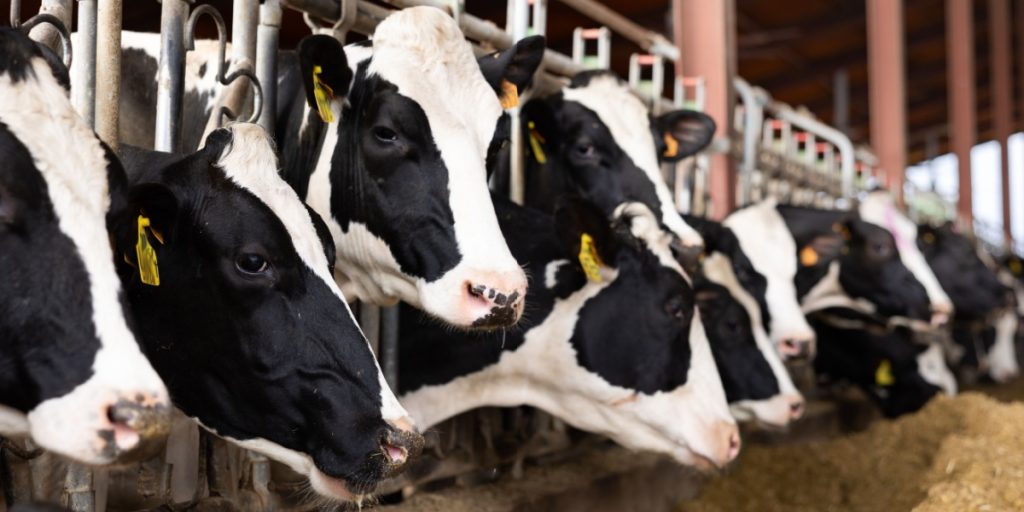The United States Department of Agriculture (USDA) has recently confirmed the detection of bird flu in dairy cows across Texas and Kansas.
Others are reading now
According to the US Department of Agriculture (USDA), dairy cows in multiple US states have fallen ill with bird flu. The virus has killed millions of birds worldwide, but this is the first time it has been detected in cattle.
How Many Dairy Cows are Affected?
According to The New York Times, milk samples from two farms in Kansas and one in Texas were found to contain the H5N1 strain of avian influenza, known for its lethality in birds. Additionally, a throat swab from a dairy cow in Texas confirmed the presence of the virus. No cows have died from the virus so far.
US agencies began testing cattle for bird flu on 22 March, following reports from dairy farms in Texas, Kansas, and New Mexico of sick cattle and sightings of deceased wild birds on their premises.
On the affected farms, approximately 10% of dairy cows are exhibiting symptoms of illness, most of whom are older. It is unclear if bird flu is responsible for all of the animals’ illnesses. US agencies are moving quickly to conduct further testing and analysis.
Also read
How Did the Cows Catch the Virus?
The USDA believes the cattle likely contracted the virus from infected wild birds, although the exact mode of transmission between species remains unclear.
Most mammals that contract bird flu are carnivores, such as foxes or seals, typically infected through consuming dead, infected birds. Since cows do not eat birds, pinpointing the source of transmission is more challenging, suggests Richard Webby at St. Jude Children’s Research Hospital in Tennessee. Contamination of the cattle’s water or food by feces or saliva from wild birds could be a potential route.
“The biggest question I can’t quite get my head around is how to explain infections across such a geographic spread of states,” says Webby.
The possibility of the virus spreading among the cows exists but seems unlikely, he mentions. This is because there has been no evidence to suggest that bird flu can transmit between mammals.
Do Sick Cows Increase the Risk of Bird Flu Spreading to Humans?
The risk of humans contracting bird flu remains low. Initial tests on samples from the infected cattle have not revealed any genetic changes indicating the virus has become more transmissible to humans.
However, whenever a mammal contracts bird flu, it presents the virus with an opportunity to mutate in ways that could enable it to spread between mammals, explains Webby. “But we still need some answers to put this into perspective: most of all, how many cows show evidence of being infected with the virus?”
A small number of infected cows would likely mean the virus will not spread further, similar to previous instances with foxes, bears, and other animals.
Is Milk Safe to Drink?
Yes, milk is still safe to drink. The USDA mandates that only milk from healthy cattle be processed. Milk from any infected cows is disposed of, ensuring it does not enter the food supply chain.
Even if contaminated milk somehow made it into the supply chain, the pasteurization process effectively eliminates bacteria and viruses, including influenza.


